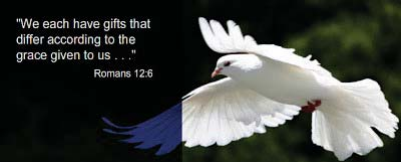All of us have seen or heard of this example: a child wants something seen at the store and insists a parent purchase it – say a candy bar. The parent patiently explains that it is close to dinner and there will be no candy before supper. After the child sulks and whines, the parent offers to purchase the candy, but the child cannot have it until after supper. The child’s anger and insistence on being given the candy bar – right now – is on display for everyone to see in the check-out line at the supermarket!
A recent television commercial promises that if you act NOW, this new carpet will be delivered to your home tomorrow. Another promises a new flat screen T V can be had with super speed. And yet another indicates that with just one click of the mouse, one can have much faster internet service and instant access to …. The whole
culture of “instant” and “faster access” to whatever seems to be spreading to everything, and I wonder what it means.
And are instant mashed potatoes really that good? Remember the term delayed gratification? The whole point seemed to me to be about realizing that something good was going to come one’s way – but only after waiting, working, saving, studying, learning …. And instant gratification is all about having that “good thing” right now!
Is it just me or do we seem to have slipped into a culture where instant gratification is now becoming the only norm?
Why does everything have to be faster? Who has placed this high value of everything happening in an instant? Who or
what is pushing this illusory truth? And at what cost do we have “faster and instant”?
One of the dangers of this immediate gratification mentality is that we can find ourselves dismissing as of little value or
reducing to irrelevant achievements, knowledge, institutions and people who do not conform to the philosophy of the immediate. If something cannot be summed up in a sound bite, it is boring or insignificant. If persons cannot satisfy
our “perceived” need in the twinkling of an eye, then they become disposable.
Let’s stop and take some time to reorient ourselves. All around us we delight in God’s creation – nothing too instant about that. People – you and me and everyone else – we are not instant. Relationships and experiences, growing and learning, working and sweating brought you to be the person you are. A friendship is a precious jewel and gift – not an instant thing. Love – while the culture might say otherwise – is an infinite, mysterious, overwhelming and wonderful experience that takes work and grows over time – never instant. Infatuation, yes, that is instantaneous; love is another matter.
After the year we have all lived through, perhaps it is a good thing to pause and savor the moment instead of looking for the next “thing” coming down the pike. This summer more than ever, take time to value the people we love, the experiences we cherish, the accomplishments we have labored to achieve. In this post-pandemic time, stop, reflect, assess, and take account of what is truly important in life instead of getting high on the newest fastest whatever. Some parts of life require immediate action yet many more might be at risk if not given the time and attention they truly deserve.
Is it possible that one of the reasons why “instant and faster” often leading to busier and busier have become normative is because so much of what occupies us is not enough? We are always moving forward and seeking more – I believe God wires each of us this way! We are touched by this truth when we pray, turn to God and live in love. For example, often people speak of the peace found when they go to church, sit in quiet and pray. Exactly. Saint Augustine said it best: “Our hearts are restless until they rest in Thee”.
Fr. Ronan

Fifteenth Sunday in Ordinary Time
July 10/11, 2021
In his Letter to the Ephesians, Saint Paul teaches that God, the Father, has established a divine plan to bring all of creation to Christ and that He has blessed us with an abundance of divine gifts to help implement that plan.
Christian stewards know what their gifts are and remain committed to using them in the service of the Lord.
Do we know what our gifts are?
Do we believe that God has given us these gifts?
Are we committed to using our gifts to serve the Lord?
